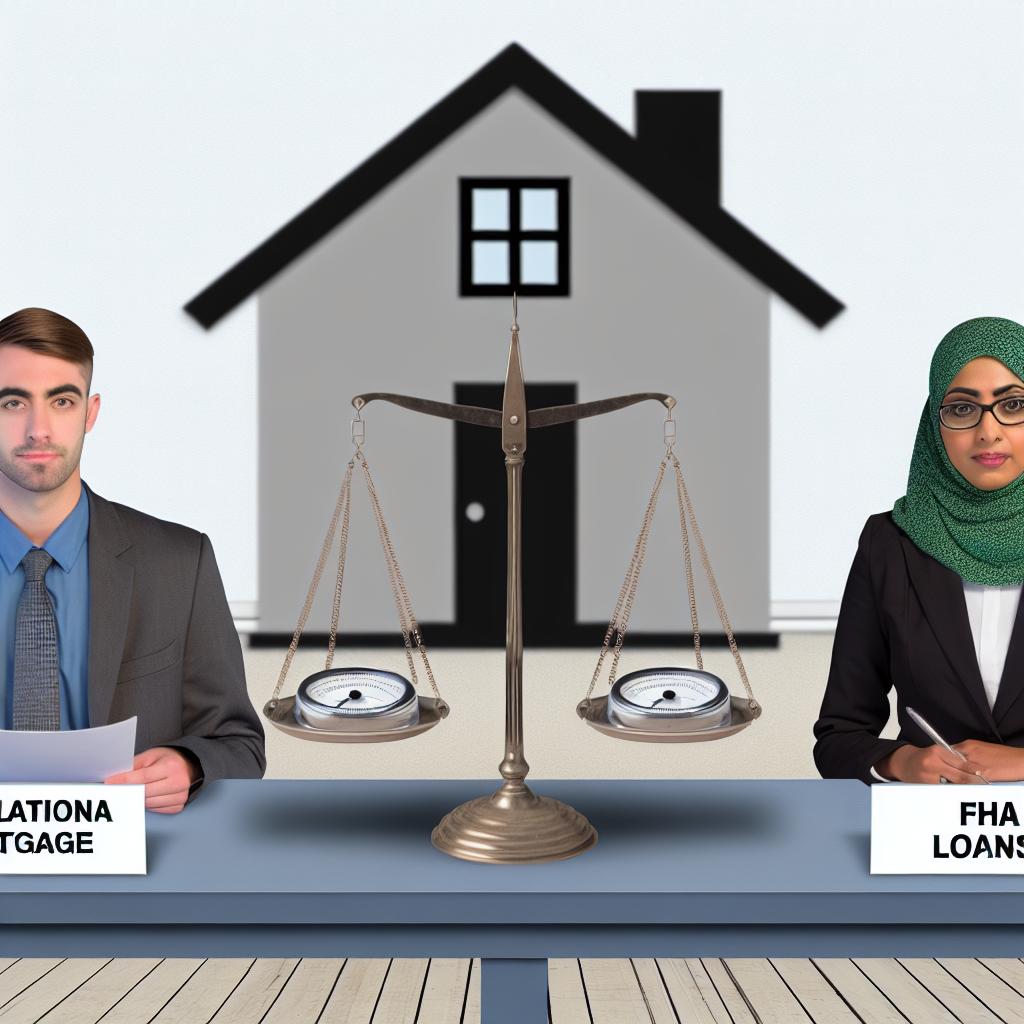
When considering a home purchase, it is essential to understand the different types of mortgages available. Among the most common options are conventional mortgages and FHA loans. Each type of loan offers distinct features and serves different borrower needs, impacting the home-buying experience in various ways.
Conventional mortgages are home loans that are not backed or insured by any government entity. These types of loans are typically known for requiring higher credit scores and down payments compared to FHA loans. Conventional mortgages are categorized into two main types: conforming and non-conforming loans.
Conforming loans are designed to adhere to the guidelines set by the Federal National Mortgage Association (Fannie Mae) and the Federal Home Loan Mortgage Corporation (Freddie Mac). These guidelines include standards for credit quality, debt-to-income ratio, and loan size. On the other hand, non-conforming loans do not meet these guidelines, often because of their size, and are therefore considered riskier for lenders.
One of the key advantages of conventional loans is their flexibility. Borrowers can use them for a wider variety of properties. While they often focus on primary homes, conventional loans are frequently used for investment properties and second homes. This makes them appealing to those looking to expand their real estate investments.
FHA loans are backed by the Federal Housing Administration, a government agency that aims to make homeownership more accessible. These loans are particularly popular among first-time buyers or those with less-than-perfect credit. One of the defining characteristics of FHA loans is their relatively low minimum down payment requirement. Potential homeowners with credit scores of 580 and above can take advantage of a down payment as low as 3.5%. Additionally, FHA loans are more lenient regarding credit history and can accommodate borrowers who have faced financial issues in the past, including bankruptcies or foreclosures.
These two types of loans differ significantly in several aspects, all of which can heavily influence a borrower’s decision-making process.
Down Payment Requirements: Conventional loans typically demand a down payment that can range from 5% to 20% of the property’s purchase price. In contrast, FHA loans require much lower down payments, which can be as low as 3.5%. This makes FHA loans an attractive option for buyers who have limited savings for a down payment.
Credit Score Requirements: Borrowers seeking conventional loans generally need higher credit scores, usually over 620. In contrast, FHA loans are much more accommodating, allowing borrowers with credit scores as low as 500 to qualify, though they must make a 10% down payment if their score falls between 500 and 579.
Mortgage Insurance: Mortgage insurance plays a significant role in the cost and attractiveness of each type of loan. For conventional mortgages, private mortgage insurance (PMI) is required when the down payment is less than 20%. Conversely, FHA loans mandate both an upfront mortgage insurance premium (UFMIP) and an annual mortgage insurance premium (MIP). The presence of these insurances tends to increase the overall cost of the loan over time.
Both conventional mortgages and FHA loans offer their own sets of advantages and drawbacks, suggesting their suitability can vary greatly depending on a borrower’s situation.
Conventional Mortgages: These loans often come with the potential for lower interest rates over the life of the loan. Another benefit is the possibility of avoiding PMI once the homeowner reaches 20% equity in the property. Furthermore, conventional loans enable borrowers to access larger loan amounts compared to FHA limits, making them well-suited for purchasing more expensive homes.
FHA Loans: The main benefits of FHA loans revolve around their accessibility, especially for borrowers with lower credit scores and those who can only afford smaller down payments. However, it’s important to remember that the ongoing insurance requirements often lead to higher fees over the life of the loan, potentially neutralizing upfront financial benefits for some borrowers.
Selecting between a conventional mortgage and an FHA loan largely depends on several personal financial factors. These factors include the borrower’s credit score, the cash available for a down payment, and long-term financial goals such as investment versus residency.
Prospective homeowners should carefully weigh these factors and even consider seeking guidance from financial advisors or mortgage counselors. These professionals can help explore how the different options might align with one’s specific needs and circumstances. Consulting with professionals can clarify the nuances of each loan type and assist in identifying the most suitable choice for individual borrowers.
Overall, understanding these fundamental differences and weighing the pros and cons of each mortgage option will guide borrowers towards securing the most appropriate financing. This informed decision-making can greatly contribute to a successful home-buying experience, aligning financial decisions with both immediate needs and future aspirations.
This article was last updated on: February 24, 2025